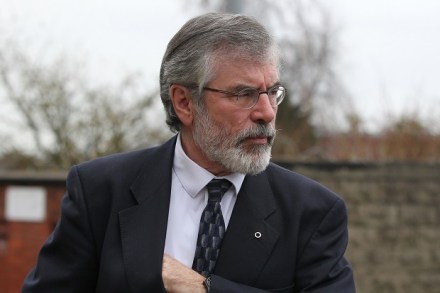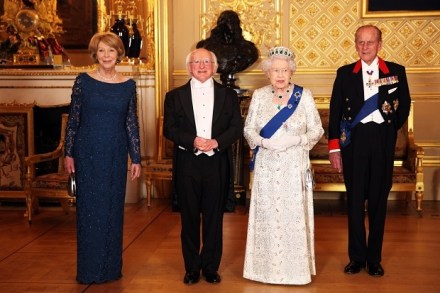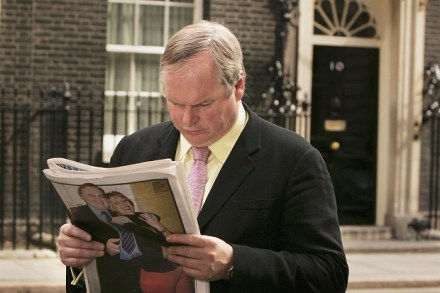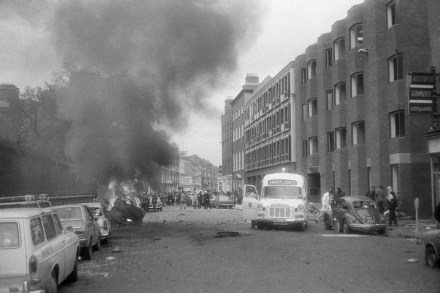Gerry Adams arrested in connection with the murder of Jean McConville
Sinn Fein President Gerry Adams presented himself to police this evening and was arrested in connection with the murder of Jean McConville. McConville was abducted from her home in Belfast by the IRA in 1972. Her body was discovered on a beach in County Louth in 2003. Adams has always denied any involvement in Mrs McConville’s death, and has frequently offered to help the Police Service Northern Ireland with their inquiries. In an official statement released this evening, Sinn Fein said: ‘Last month Gerry Adams said he was available to meet the PSNI about the Jean McConville case. That meeting is taking place this evening.’ There have been a number of















